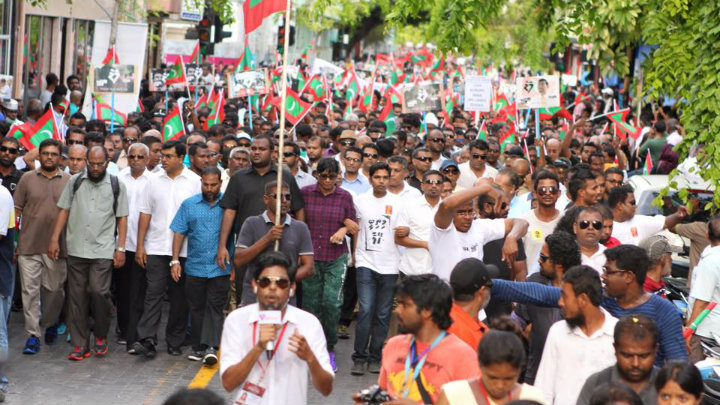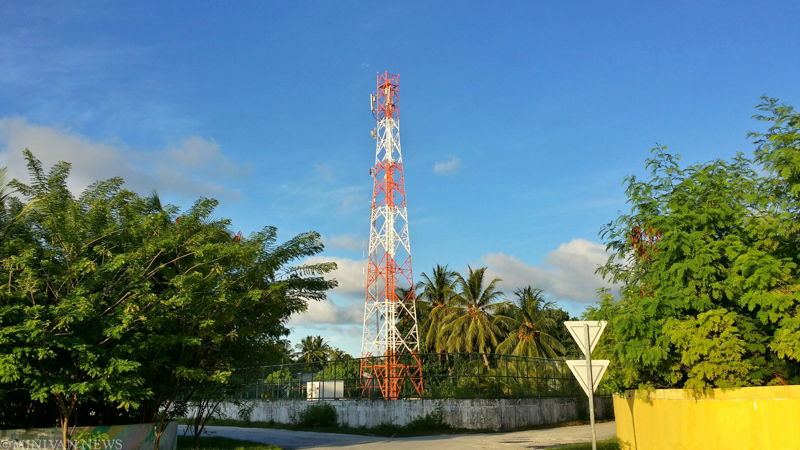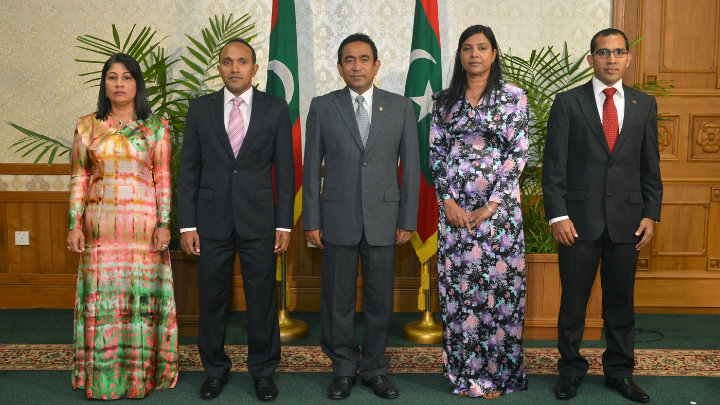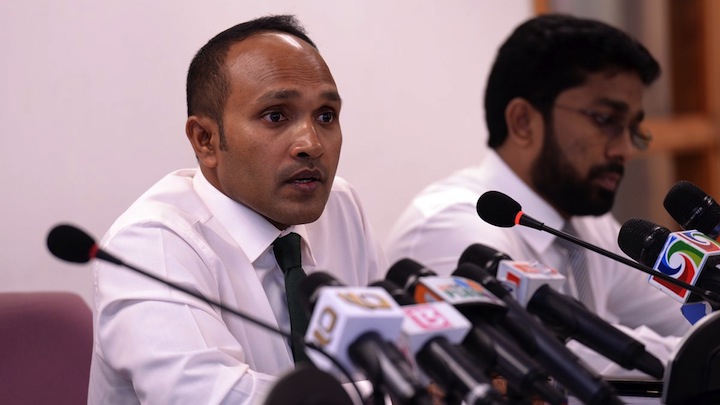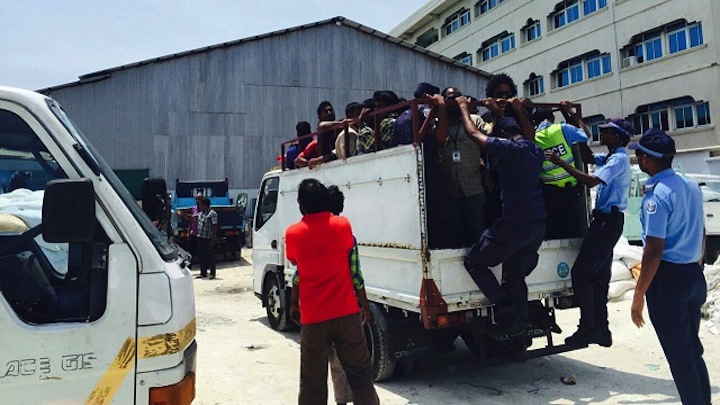The allied opposition parties have called for a third mass demonstration for June 12 as President Abdulla Yameen reiterated appeals for negotiations over continuing political turmoil.
The call for a new protest comes weeks after police arrested nearly 200 people, including opposition leaders, from a historic anti-government protest on May 1.
The “large-scale peaceful rally” will be lawful, the main opposition Maldivian Democratic Party (MDP) MP Ibrahim ‘Ibu’ Mohamed Solih said today. He appealed for support from the security forces.
“We call upon all institutions, especially the security forces, to cooperate with us for the rally, and not to obstruct the citizen’s from fulfilling their constitutional responsibility,” he said.
The ‘Maldivians against tyranny’ alliance is protesting against alleged government authoritarianism and demanding the release of jailed ex-president Mohamed Nasheed and ex-defence minister Mohamed Nazim.
Nearly 20,000 people took to the streets on May 1 in what is thought to be the largest anti-government protest in Maldivian history.
The coalition’s activities had slowed down following the May Day crackdown. Police had declared the protest unlawful, arrested the leaders of the three allied parties and used tear gas, stun grenades, pepper spray and baton charges to disperse protesters.
Adhaalath Party president Sheikh Imran Abdulla and MDP chairperson Ali Waheed remain in police custody. Jumhooree Party deputy leader Ameen Ibrahim was released by an appellate court.
President Abdulla Yameen has meanwhile called for negotiations, but has ruled out discussions over Nasheed and Nazim’s imprisonment, saying he has no authority over their release.
The opposition has questioned the president’s “sincerity,” but JP has accepted the invitation, while the Adhaalath says it will sit down with the government once Sheikh Imran is released. The MDP is yet to make a statement on the invitation.
“There is no room to question our sincerity. We will find out whether the government is sincere or if the opposition is sincere when we reach the negotiating table,” president Yameen said at a press conference today.
He insisted that all-party talks must prioritise national interest: “The biggest issues in the country do not include the conviction of criminals or their next steps.”
He urged Nasheed to appeal, saying the president can only help when the appeal process is completed.
Nasheed’s lawyers said the criminal court prevented them from lodging an appeal by refusing to hand over the required court transcripts within the shortened ten-day time frame. The government insists Nasheed can still appeal, but his lawyers say the law, amended by the Supreme Court, is silent on late appeals.
“If the opposition claims to protects the people’s rights, then come negotiate with us. The government is ready to accept the issues raised by the opposition with cooperation, so come to negotiate,” he said.
Journalists were barred from carrying phones during the press conference, but recorders and cameras were allowed.
Responding to the president’s comments, Ibu today said the MDP will answer the government in writing on Thursday. The MDP is holding a national council meeting tonight.
“Even at the beginning of our activities we have called upon the government for dialogue, to find solutions through discussions. We see this as President Yameen’s answer to our calls,” he said.
The MDP will take the lead in organising the June 12 demonstration, Ibu said. The JP had led the protest on Februray 27 and Adhaalath Party had claimed responsibility for the May 1 rally.
The coalition says it will visit various islands in the coming weeks to canvass for support. Nearly 7000 islanders joined the protest in Malé on May Day.
